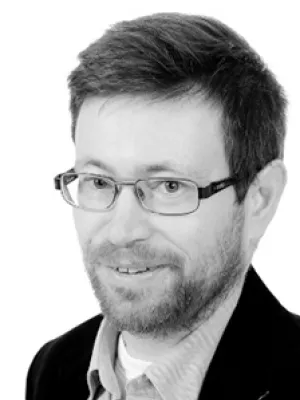
Anders Uhlin
Professor

A European Civil Society Elite? : Analysing Capital and Drama at the European Economic and Social Committee
Författare
Summary, in English
Contributing to research on civil society elites in the EU context, this article
focuses on the European Economic and Social Committee (EESC). It explores
who the main actors are, what roles they play, and what resources they use,
value, and compete for in this arena. The theoretical starting points are
grounded in Bourdieu’s notions of field and capital and a Goffmanesque
approach to drama. Based on semi-structured interviews with EESC members
and administrators, observations at EESC meetings, and document analysis,
the study explores the types of capital linked to different actors and roles,
stages, and scripts in the EESC field. The most valued capital across EESC
stages are social capital in the form of personal networks, and cultural capital
in the form of negotiation skills and issue-specific knowledge. Actors are
supposed to follow a script of being pro-European, representing organised
civil society in Europe, and aiming at consensus. Being active at the EESC
stages, at least in leading roles, gives actors a kind of EESC-specific capital in
the form of access to influential EU decision-makers.
focuses on the European Economic and Social Committee (EESC). It explores
who the main actors are, what roles they play, and what resources they use,
value, and compete for in this arena. The theoretical starting points are
grounded in Bourdieu’s notions of field and capital and a Goffmanesque
approach to drama. Based on semi-structured interviews with EESC members
and administrators, observations at EESC meetings, and document analysis,
the study explores the types of capital linked to different actors and roles,
stages, and scripts in the EESC field. The most valued capital across EESC
stages are social capital in the form of personal networks, and cultural capital
in the form of negotiation skills and issue-specific knowledge. Actors are
supposed to follow a script of being pro-European, representing organised
civil society in Europe, and aiming at consensus. Being active at the EESC
stages, at least in leading roles, gives actors a kind of EESC-specific capital in
the form of access to influential EU decision-makers.
Avdelning/ar
- Statsvetenskapliga institutionen
- Socialhögskolan
Publiceringsår
2023
Språk
Engelska
Sidor
87-106
Publikation/Tidskrift/Serie
European Societies
Volym
25
Issue
1
Dokumenttyp
Artikel i tidskrift
Förlag
Taylor & Francis
Ämne
- Sociology (excluding Social Work, Social Psychology and Social Anthropology)
Nyckelord
- Bourdieu
- Goffman
- civil society elite
- EESC
- EU
Status
Published
Projekt
- Civil society elites? Comparing elite composition, reproduction, integration and contestation in European civil societies
ISBN/ISSN/Övrigt
- ISSN: 1461-6696

